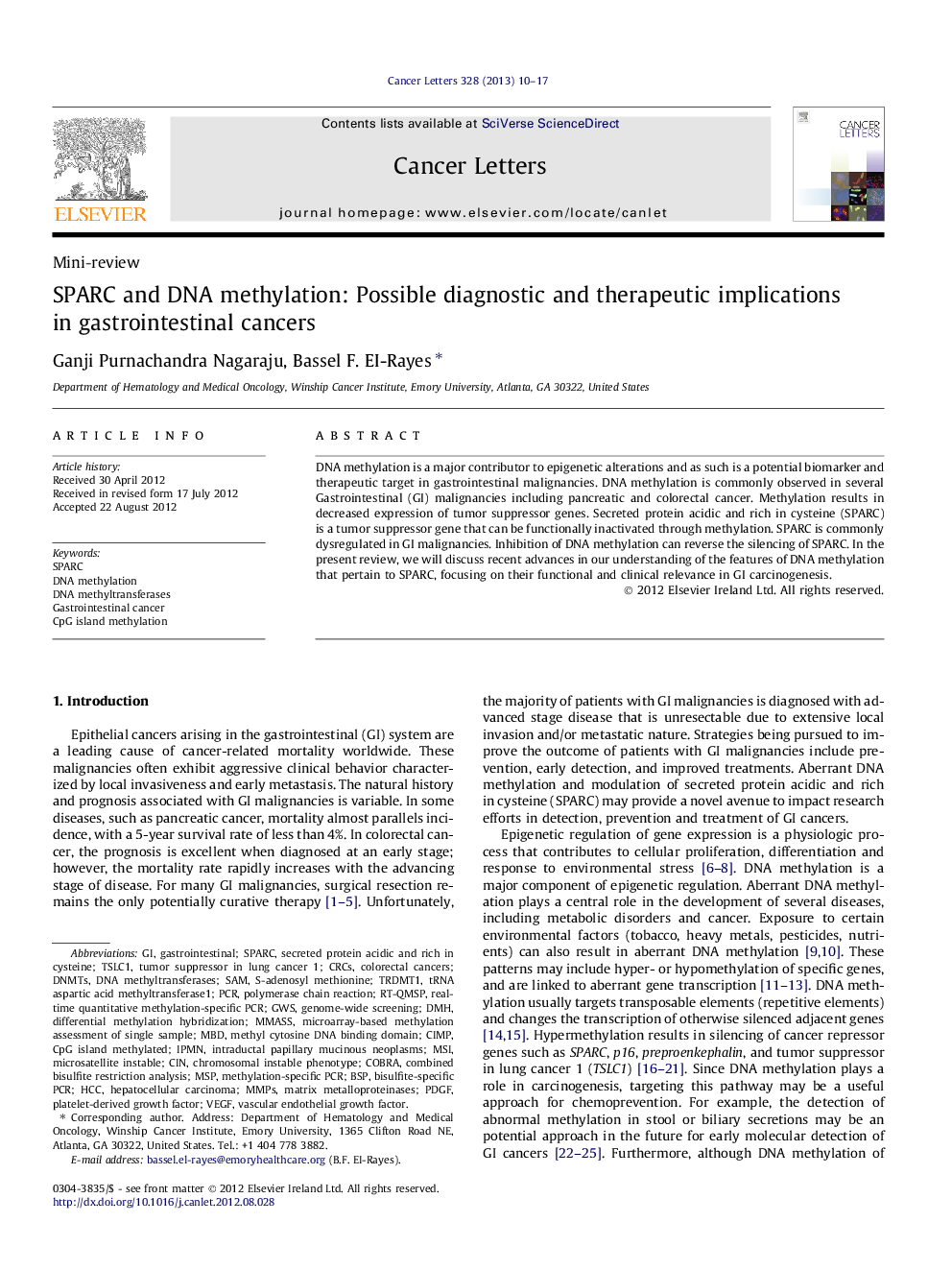| Article ID | Journal | Published Year | Pages | File Type |
|---|---|---|---|---|
| 2116316 | Cancer Letters | 2013 | 8 Pages |
DNA methylation is a major contributor to epigenetic alterations and as such is a potential biomarker and therapeutic target in gastrointestinal malignancies. DNA methylation is commonly observed in several Gastrointestinal (GI) malignancies including pancreatic and colorectal cancer. Methylation results in decreased expression of tumor suppressor genes. Secreted protein acidic and rich in cysteine (SPARC) is a tumor suppressor gene that can be functionally inactivated through methylation. SPARC is commonly dysregulated in GI malignancies. Inhibition of DNA methylation can reverse the silencing of SPARC. In the present review, we will discuss recent advances in our understanding of the features of DNA methylation that pertain to SPARC, focusing on their functional and clinical relevance in GI carcinogenesis.
► Aberrant hypermethylation can lead to gene silencing and loss of tumor suppressor activity in cancer. ► Aberrant hypermethylation has been reported in gastric, pancreatic, colorectal and hepatocellular cancer. ► Silencincing of SPARC through hypermethylation has been commonly observed in GI cancers. ► SPARC overexpression can result in inhibition of apoptosis, angiogenesis, invasion, and metastasis.
